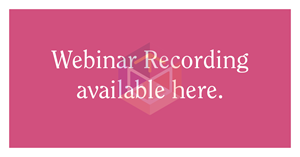< News
Webinar report: Being influential in your role as an in-house lawyer
Our 2024 Legal Leaders webinar programme in partnership with Thomson Reuters kicked off to explore opportunities for in-house lawyers to exert influence.
‘Try to leave your client with 3 key points from your advice’
Sinead Murray
‘When in doubt, draw the business back to its guiding light’
Mandy Kaur
Sinead Murray is General Counsel at Ofgem, the energy regulator of Great Britain. An in-house lawyer in the civil service for 23 years, Sinead has overseen complex fraud prosecutions, personal tax issues, international work and advised on the Olympics, having also held roles with HMRC and the Department for Business, Energy and Industrial Strategy.Originally a management accountant, Mandy Kaur previously led a local authority finance team supporting fostering and adoption for Children, Learning and Young People. Deciding that she preferred to be part of the solution rather than throwing money at a problem, Mandy studied law part-time and converted her finance degree to a law degree. Today, having worked for Gondola Group between 2008 and 2014, Mandy is the Legal Director at PizzaExpress.
Sinead and Mandy identified three key themes that enable in-house lawyers to become influential – and discussed these from their distinct public sector and private sector perspectives.
Building your network
Most in-house lawyers say they wouldn’t get anywhere without an active network and Sinead and Mandy agree wholeheartedly with that assertion. It’s not always easy to make first contact with a stranger when you’re new to an organisation or at a business function, so Sinead’s advice is to be an introvert in an extrovert’s clothing. One great way to put this into practice is to approach a person with a pretext for starting a conversation. By asking if you can discuss topic ‘X’, you can then move onto other subjects and gradually build the foundation of a rapport that, in time, can lead to a close working relationship.Mandy, too, found networking hard in the early years of her career. However, having worked alongside seven CEOs, three private equity owners and eight marketing directors in 15.5 years, she has felt the value of networks at close hand and believes the hard work pays off. A great deal of networking happens organically as organisations evolve and people move on. The trick is to be consciously aware that your network is always a work in progress and keep in touch with people at appropriate intervals.
Networking can be a lot more than a mechanism for career progression and buying and selling products and services. Emotional support, bouncing ideas off and comparing notes on how national issues affect people in other sectors are all great reasons to build a community and keep in touch. For many people, networks have supported, developed and nurtured amazing careers.
Understanding your clients
A big difference between working in private practice and in-house is in the type of advice you’ll be asked to give your internal clients – and the style you deliver it in. Businesses often go to law firms for specific legal advice and support. In-house, it’s a lot more varied.Senior colleagues will be far more interested in pragmatic, actionable business support than the finer points of the law. They won’t understand legalese and complex technical explanations. Instead, sound commercial advice given in plain English is what they’re after. Of course, you’ll be expected to set out risks and legal obstacles but remember to play the part of a team member who’s there to help the business achieve its objectives.
With this mind, a winning approach is to talk about the overall objectives of a project and then, with your legal expertise and analytical mind, set out a journey that helps the organisation arrive at its destiny. Similarly, when asked for help, start with a ‘yes’ (unfortunately in-house lawyers can have a reputation for starting with a ‘no’) and then find the safe legal route to the outcome. It may prove tricky, but as well as enhancing your reputation in the business, you’ll grow as both a lawyer and a trusted business partner.
You’ll also need to understand your organisation’s risk appetite – which can alter significantly when there are changes in circumstances or senior management.
Being a valued colleague
Empathy, communication skills and the willingness to give yourself time to respond to questions and requests are just as important as technical legal skills. Your expertise with complex legal issues is worth precious little if people sense that you’re not on board with their goals or challenges.
Avoid giving advice on the spot if you don’t have the answer to hand. It always looks more professional to say, ‘I don’t know, but will come back to you within 24 hours,’ than to say what you think people want to hear, only to go back on in a little later. In fact, you can go further and ask, ‘what would like the answer to be/ where do we need to get to?’ and commit to finding out if - and how - that would be possible.
At the same time, you’ll need to develop your internal barometer for right and wrong. If something feels wrong, it probably is. In this scenario, bring colleagues back to the organisation’s guiding light and, if necessary, push boundaries to do the right thing. In short, ask colleagues ‘where do we want to be?’ rather than blind them with legal jargon.
So, to be influential as an in-house lawyer, be yourself, keep the organisation’s commercial goals uppermost in mind and keep your communications with colleagues human yet business-like.
And never stop building that network.

In the second webinar of this series, we’ll be looking at the big challenges in-house lawyers face today. Join us for that on 17 April at 2.00pm.

